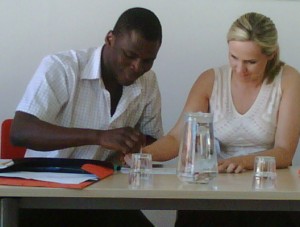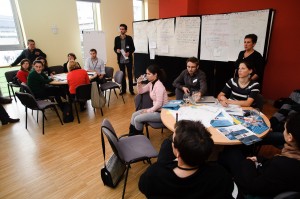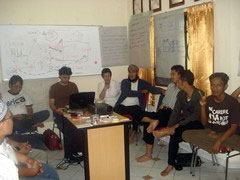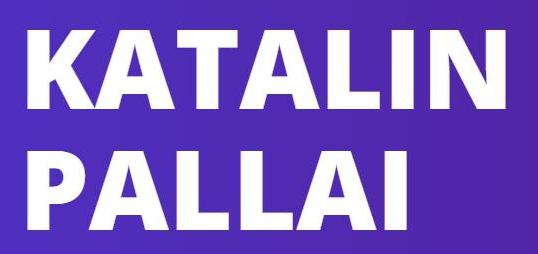Multi-ethnic Community Management Program
 Between 2005 and 2011 I worked for 7 years as faculty in the frame of this program established by the Open Society Institute and had the opportunity to develop and teach courses with leading experts of minority rights and other fields of minority studies. The courses focused on local political opportunities (and limitations) in the accommodation of the needs and aspirations of ethno cultural minorities. The course development was an interdisciplinary work where my role was to bring in the knowledge of local governance, dispute resolution and field experience from local democracy building. During the course development I worked with the minority experts to develop an integrated conceptual framework and experience based teaching material to discuss existing local multicultural policies and practices and to identify the major issues and dilemmas in the local management of ethnocultural diversity. Each course was presented to a widely international audience, including participants from Europe, Africa, Asia. The courses I designed and led with a co-trainer were: Minority rights and local governance; Power sharing in Multi-ethnic Communities; Public Policy Process in Multi-ethnic Communities; Service delivery in Multi-ethnic Communities; Managing Conflict and Urban Development in Multi-ethnic Communities.
Between 2005 and 2011 I worked for 7 years as faculty in the frame of this program established by the Open Society Institute and had the opportunity to develop and teach courses with leading experts of minority rights and other fields of minority studies. The courses focused on local political opportunities (and limitations) in the accommodation of the needs and aspirations of ethno cultural minorities. The course development was an interdisciplinary work where my role was to bring in the knowledge of local governance, dispute resolution and field experience from local democracy building. During the course development I worked with the minority experts to develop an integrated conceptual framework and experience based teaching material to discuss existing local multicultural policies and practices and to identify the major issues and dilemmas in the local management of ethnocultural diversity. Each course was presented to a widely international audience, including participants from Europe, Africa, Asia. The courses I designed and led with a co-trainer were: Minority rights and local governance; Power sharing in Multi-ethnic Communities; Public Policy Process in Multi-ethnic Communities; Service delivery in Multi-ethnic Communities; Managing Conflict and Urban Development in Multi-ethnic Communities.
Multiculturalism
 The course is part of the Masters in International Public Management curriculum at the Hungarian National University of Public Service, I developed it both in English and Hungarian. Its aim is to develop students’ intercultural competencies, with focus on knowledge, skills and behaviors necessary to deal with clients and partners of public service. The knowledge components enhance students’ capacity to map and understand different assumptions, values and mind sets of clients, and introduce students to key conceptual frameworks of multiculturalism and to the principles of collaborative negotiation and non-violent communication. The skill and behavioral components offer opportunity to collect personal experiences and practice problem solving and conflict resolution methods in simulated multicultural and multi-ethnic situations. The course is held in a training format that is based on experimental teaching methodology. The students participate in interactive exercises, individual and group reflections and debates. They experience multicultural situations and learn problem solving and conflict resolution techniques. The teacher acts as facilitator during the exercises, and after the exercise debriefing, builds short conceptual presentations on the conclusions reached by the group.
The course is part of the Masters in International Public Management curriculum at the Hungarian National University of Public Service, I developed it both in English and Hungarian. Its aim is to develop students’ intercultural competencies, with focus on knowledge, skills and behaviors necessary to deal with clients and partners of public service. The knowledge components enhance students’ capacity to map and understand different assumptions, values and mind sets of clients, and introduce students to key conceptual frameworks of multiculturalism and to the principles of collaborative negotiation and non-violent communication. The skill and behavioral components offer opportunity to collect personal experiences and practice problem solving and conflict resolution methods in simulated multicultural and multi-ethnic situations. The course is held in a training format that is based on experimental teaching methodology. The students participate in interactive exercises, individual and group reflections and debates. They experience multicultural situations and learn problem solving and conflict resolution techniques. The teacher acts as facilitator during the exercises, and after the exercise debriefing, builds short conceptual presentations on the conclusions reached by the group.
Inter-cultural/inter-ethnic communication, cooperation and conflict resolution trainings
 I have spent 20+ years working with local government and civil society stakeholders in numerous countries and cultures including Hungarian, Eastern- and South-East European, American, British, and currently I live in Austria. My first hand experience, underpinned with academic studies, gives the in depth understanding of the difference in cultural attitudes and codes, and the challenges of working across cultures. My expertise is in working with local governments and various other stakeholders on specific local issues, like public participation, local service provision and conflict resolution in highly diverse and multi-ethnic communities.
I have spent 20+ years working with local government and civil society stakeholders in numerous countries and cultures including Hungarian, Eastern- and South-East European, American, British, and currently I live in Austria. My first hand experience, underpinned with academic studies, gives the in depth understanding of the difference in cultural attitudes and codes, and the challenges of working across cultures. My expertise is in working with local governments and various other stakeholders on specific local issues, like public participation, local service provision and conflict resolution in highly diverse and multi-ethnic communities.
The aim of the course is to enhance participants’ intercultural awareness, and strengthen their skills and competence to work effectively with partners from other cultures. During the course through different exercises (like, story telling, discussions, role plays, and individual and group reflections) participants understand how cultural values and attitudes affect intercultural/inter-ethnic communication and interaction. They also learn key concepts related to identity formation and to the political and policy options for accommodating the needs and aspirations of diverse identity groups. From case studies they see models and strategies for more effective intercultural communication, for improved working across cultures, and for resolving intercultural misunderstandings and conflicts. The result can be better understanding of clients, awareness and appreciation of cultural difference and reduced conflict in the community.
Such courses work best when participants are as diverse, as the communities they live in. Facilitated work in the safe environment of the training can help minorities and immigrants to understand the relationship between their own culture and the dominant culture, and majority members to understand the specific challenges of their own and their counterparts’ in developing constructive and fulfilling relations. In such environments while participants develop their personal intercultural competence, they can also develop relations and ideas that can contribute to developing the intercultural competence of the organization, to enhance the level of services provided and decrease frustration and conflict among stakeholders.
